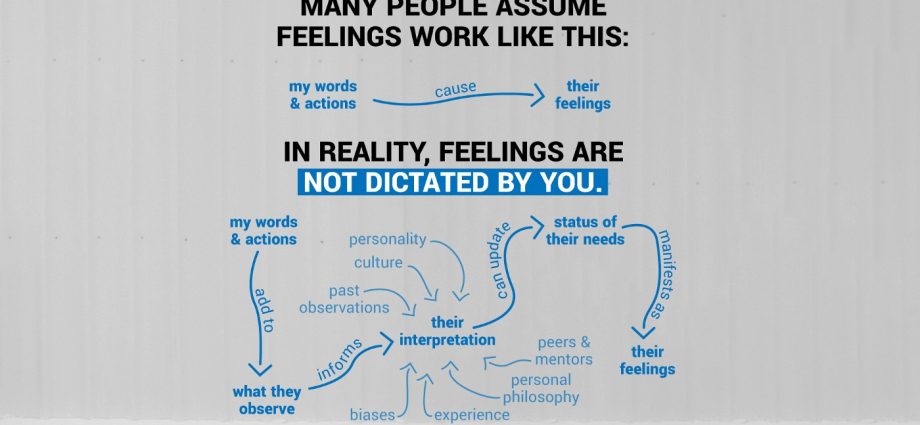We blame ourselves for any problems. The colleague did not smile — my fault. The husband came gloomy from work — I did something wrong. The child is often sick — I pay little attention to him. And so it is in everything. How can you relieve yourself of the burden of responsibility and understand that you are not the center of the universe of other people?
How often it seems to us that others are doing something because of us, that the reason for their actions is our actions or attitudes! If any of my friends are bored at my birthday, it’s my fault. If someone passed by and didn’t say “hello”, they deliberately ignore me, what did I do wrong?!
When we ask questions about “what does he think of me”, “why did she do this”, “how do they see this situation?”, We are trying to penetrate the insurmountable wall between us, because no one can ever see directly the content of the world of others. And this is one of our most amazing features — to make assumptions about how the inner world of another works.
This ability most often works with a weak participation of consciousness, and almost continuously, starting from early childhood. Mom comes home from work — and the child sees that she is in a bad mood, not included in his games, does not really listen to what he says, and practically does not look at his drawings. And a small child of four years old is trying, to the best of his ability, to understand why, why this is happening, what is wrong.
At this moment, the child cannot understand that the world of adults is much larger than his figure.
The consciousness of the child is egocentric, that is, it seems to him that he is in the center of the world of his parents and almost everything that parents do is connected with him. Therefore, the child may come to the conclusion (and this conclusion is not the result of strict logical reasoning, but an intuitive feeling) that he is doing something wrong.
The psyche helpfully throws up memories when mom or dad was very unhappy with something in his behavior and moved away from him — and the picture is clear: it’s me — the reason that mom is so «unincluded». And I have to do something about it urgently. Trying to be very, very, very good, or try to cheer up your mother somehow. Or just the horror that my mother does not communicate with me is so strong that it remains only to get sick — then my mother usually pays a lot of attention. Etc. All these are not conscious decisions, but desperate unconscious attempts to improve the situation.
At this moment, the child cannot understand that the world of adults is much larger than his figure and that there is still a lot going on outside of their communication. In his mind, there are no colleagues of his mother with whom she may have quarreled. There is no angry boss, threat of dismissal, financial difficulties, deadlines and other “adult affairs”.
Many adults, for various reasons, remain in this position: if something is wrong in a relationship, this is my flaw.
The feeling that all the actions of others towards us are due to our actions is a natural attitude for childhood. But many adults, for various reasons, remain in this position: if something is wrong in a relationship, this is my flaw! And how hard it is to understand that although we can be significant enough for others so that there is a place for us in their soul, it is still not enough for us to become the center of their experiences.
The gradual decrease in the idea of the scale of our personalities in the minds of others, on the one hand, deprives us of confidence in the conclusions regarding their actions and motives, and on the other hand, it makes it possible to exhale and lay down the burden of total responsibility for what others think and feel. They have their own life, in which I am only a fragment.










